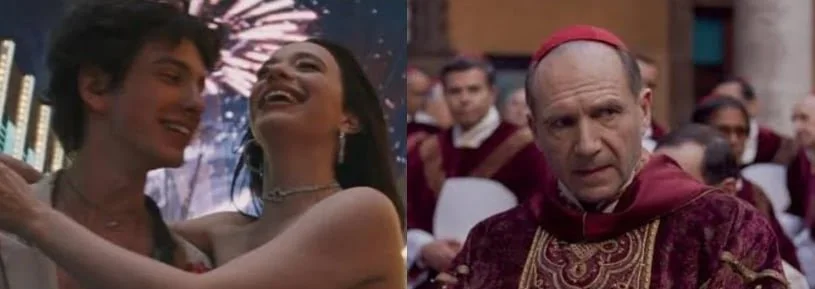
When I first heard that David Fincher -one of the great modern directors- was going to tackle Stieg Larsson's hugely popular pulp novel The Girl With The Dragon Tattoo, I held my breath. I mean here's a book that was already adapted as a movie earlier last year in its native tongue of Swedish (My Review can be found HERE) & didn't really need to be followed-up as an American remake. Little did I know Fincher would change things up quite a bit here and make something that is competently watchable even though it does give us a certain sense of deja vu.
Listen up, this film ain't perfect but what Fincher does is consequently change the material he has at hand with his own uniquely dark spin on goth girl power. Rooney Mara gives the female performance of the year as Lisbeth Salander and she is Fincher's muse throughout this movie's close to 160 minute running time. Fincher shoots her with such a keen eye for detail that the murder mystery plot that surrounds the movie is only second to our fiery heroine. It's a character study. Fincher knows Salander is the central interest for viewers and he quenches our thirst.
The eye popping opening credits are hard to describe. Computer cables, naked bodies and dark blood are showcased throughout as Trent Reznor's scorching remake of Zeppelin's Immigrant Song plays in the background. I saw it as a warning to audiences to beware and know the whiplash that is coming, if you can't handle the loud, heavy metaled credits you won't be able to handle the film itself which features rape and graphic violence. Reznor's incredible score follows up the masterful work he did in Fincher's The Social Network late last year.

This is also very much an auteur movie all the way through. Fincher frames his shots and lights his lighting much in the same beautifully obessive way he did in Zodiac and The Social Network. For Fincher, every shot counts, every gesture by Mara is key but -unlike Zodiac- there aren't clues that lie in every frame (a kind of let down for me) just incredibly nasty people that deserve much bad will.
Who are we kidding here, this is pulpy, cryptic stuff that the late Larsson concocted a few years ago in his Stockholm suite. It was bound to rub critics and audiences the wrong way and Fincher knew that all along. The film's flaws show, the sense of deja vu I was talking about earlier is very much present. Fincher can't change everything and has to lay bare with important plot details that have appeared in both the books and the Swedish movies. I can deal with that, cause my heart is with Mara -an incredible talent- and the heart and soul of this nasty movie. I fell in love with the girl and her dragon tattoo.





